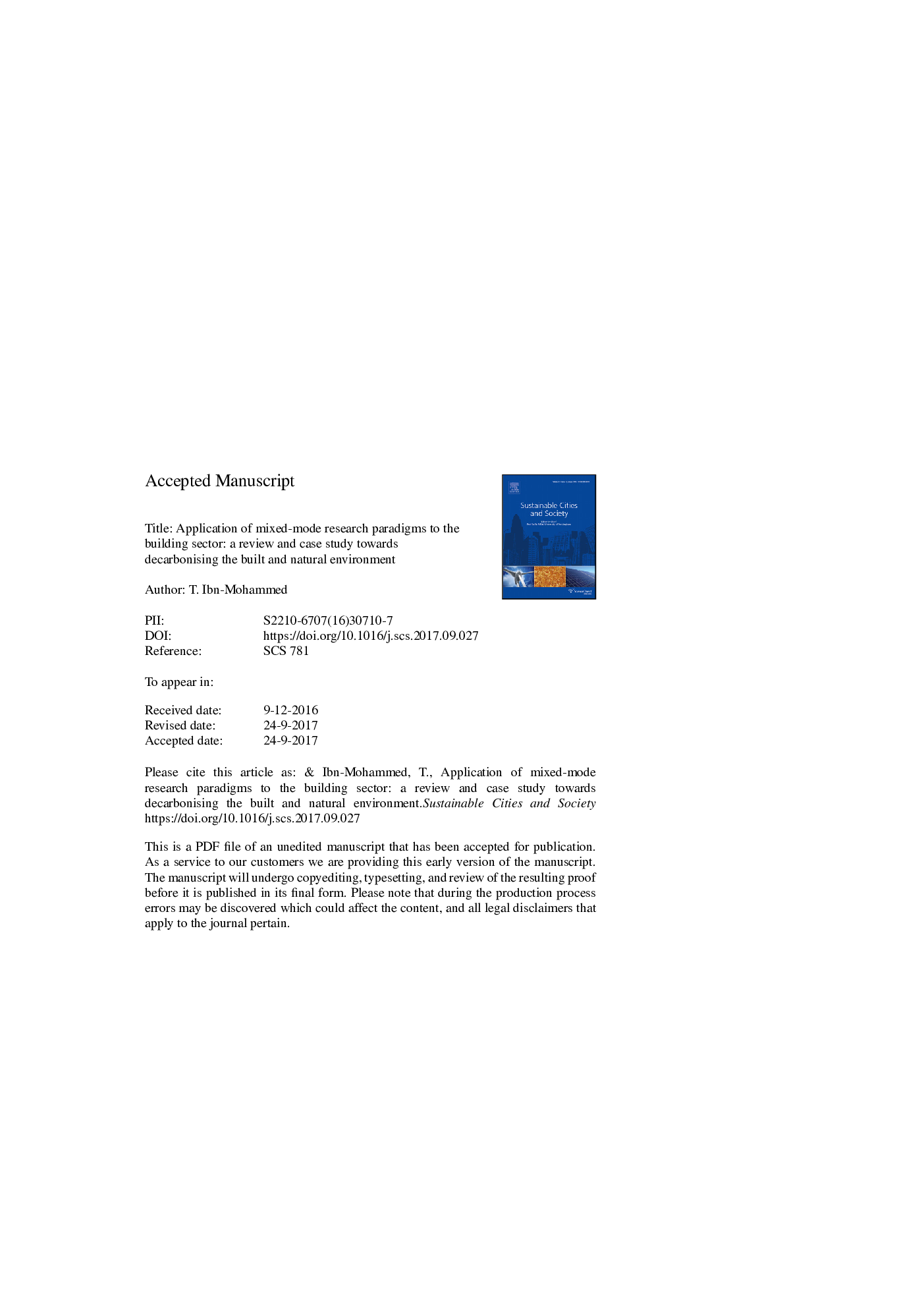| Article ID | Journal | Published Year | Pages | File Type |
|---|---|---|---|---|
| 4928073 | Sustainable Cities and Society | 2017 | 56 Pages |
Abstract
The building sector constitute a critical part of the climate change problems, representing the single largest contributor to greenhouse gas emissions. Yet, the sector is central to low-cost climate change mitigation worldwide, making it an integral element in the process of decarbonisation, with the potential to induce effective policy development required to guide the move towards a sustainable low-carbon future. As such, a great deal of cutting-edge and impactful research targeting the sector has been carried out. However, there are fragmentations and inconsistencies in integrating research paradigms to addressing challenges within the sector, with most research adopting either pure qualitative or pure quantitative approaches. Research within the sector encompasses phenomena such as perception, emotions and different behavioural patterns as it pertains to stakeholders, and a number of research have suggested that the use of single-mode research paradigm often fails in exploring these factors. Given the complex nature of the interaction between key actors (i.e. society and the socio-environmental systems) within the sector, the use of mixed-mode research paradigms to address this weakness whilst enhancing research into the sector has become pertinent. Against this backdrop, this paper reviews available paradigms through a case study to illustrate how a research agenda within the sector can be formulated from initiation to fruition using mixed-mode approaches. The paper illustrates the development of a quantitative energy model in the form of a decision support system for building energy retrofit advice. A qualitative evaluation strategy which highlights the social processes that underpins the diffusion of new innovations towards decarbonisation efforts is equally provided. Also discussed are philosophical stances that pertains to research in the sector and the evolution of a research problem stemming from the identification of gap in knowledge in the field and the necessary steps taken towards actualising the research objectives. The concepts illustrated within this paper can be useful for academicians, doctoral research students, early career researchers, policy makers and allied professionals in understanding the key steps required to formulate a research agenda targeting the building sector as well as other related sectors.
Related Topics
Physical Sciences and Engineering
Energy
Renewable Energy, Sustainability and the Environment
Authors
T. Ibn-Mohammed,
